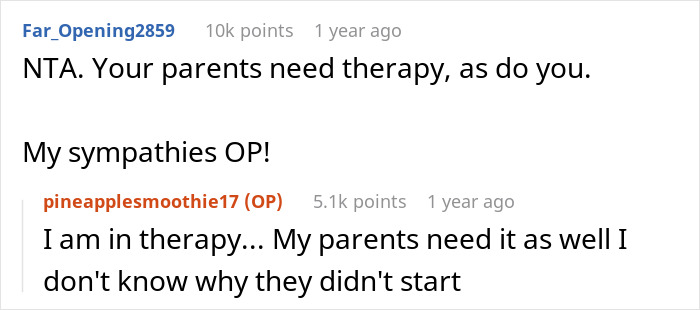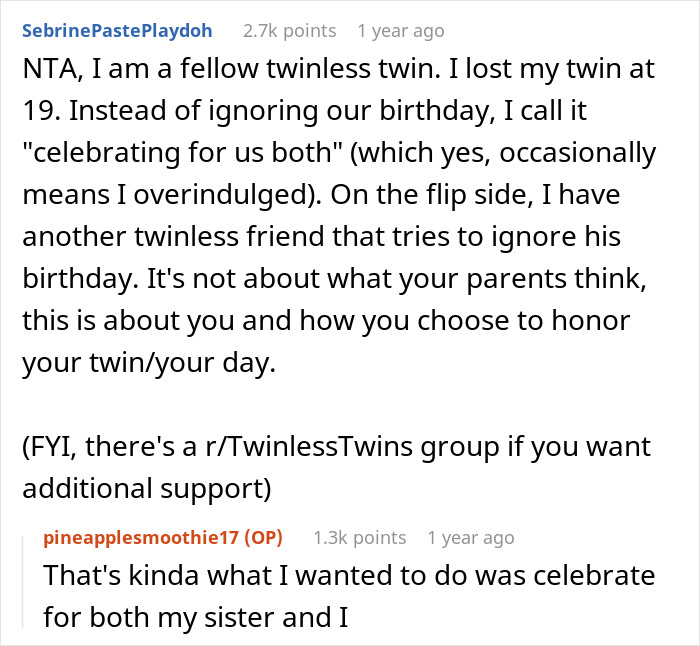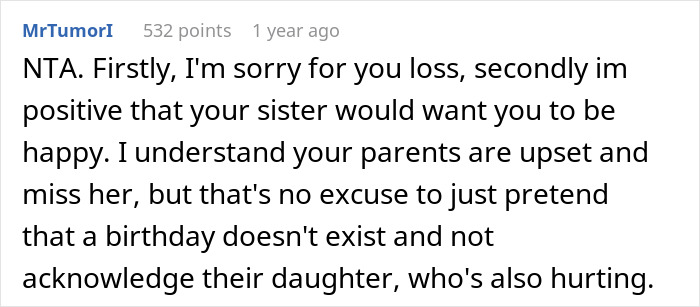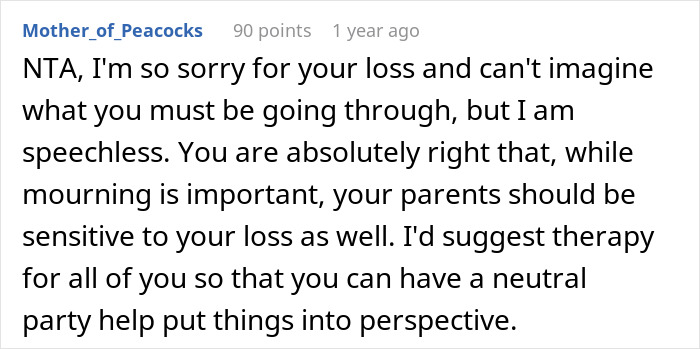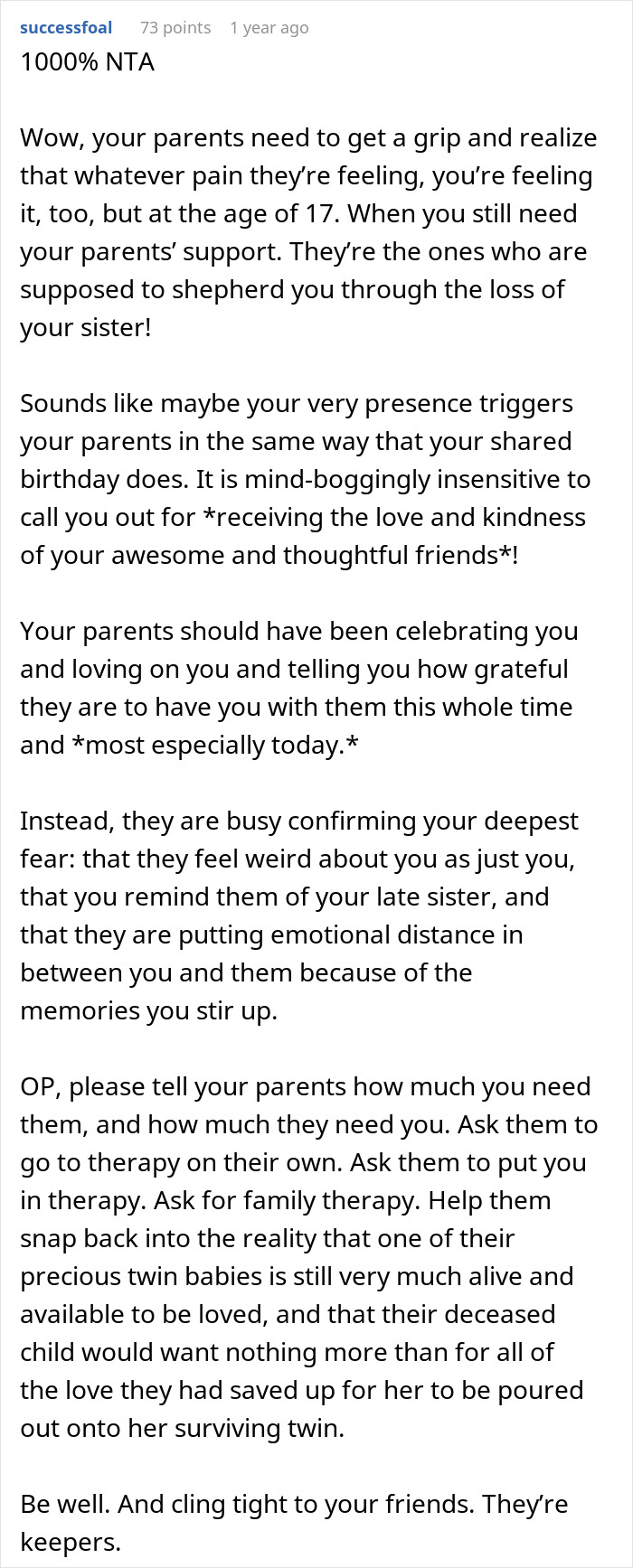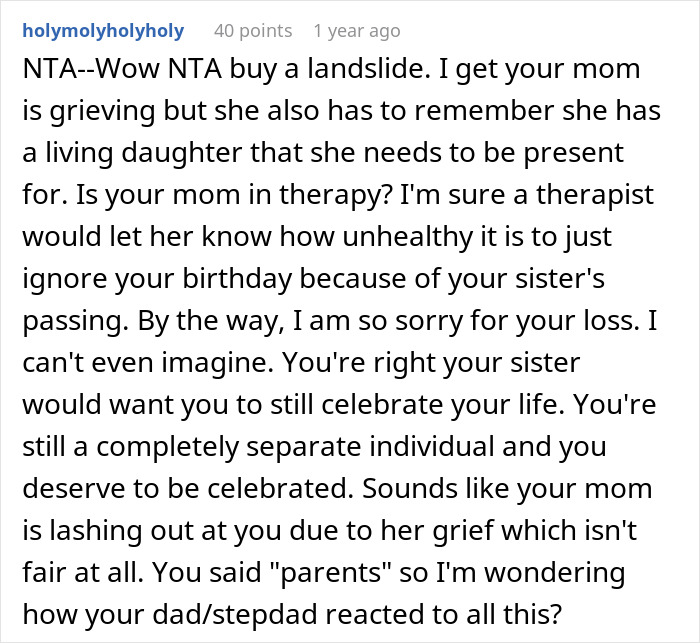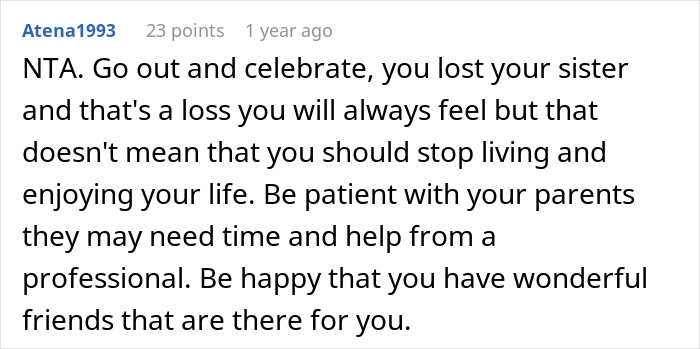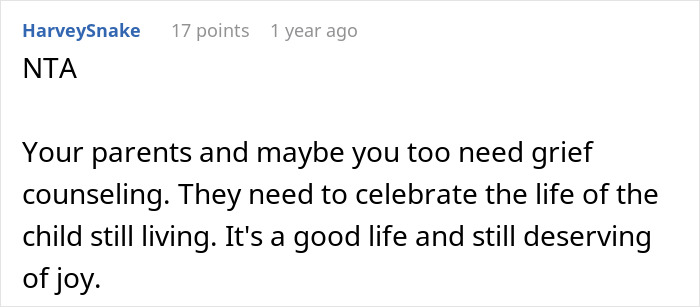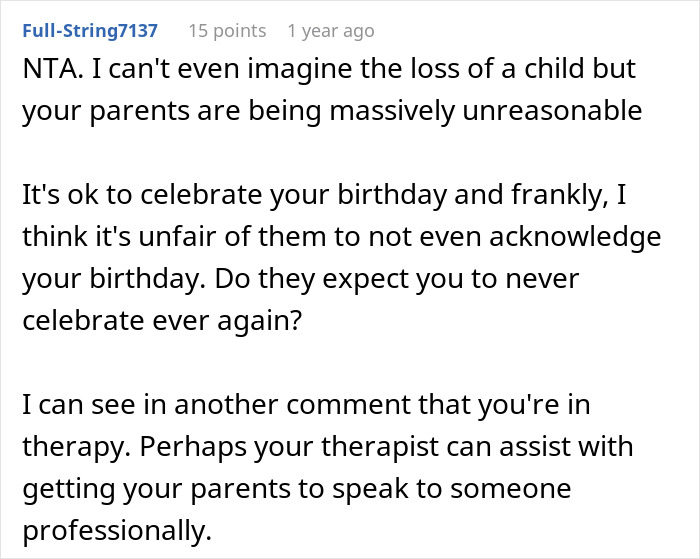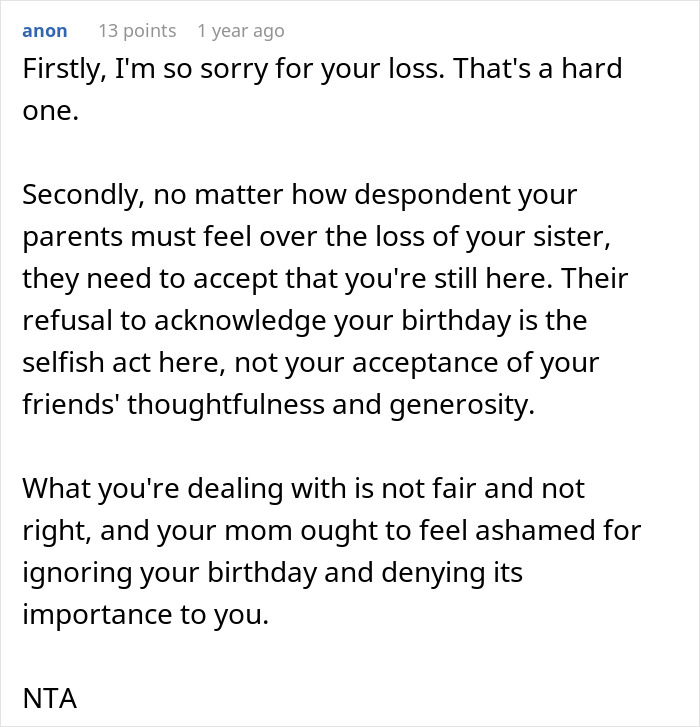Everyone grieves differently, especially for their child. There’s usually no time frame or checklist when it comes to accepting such a loss. However, for many, it may feel unfair that the natural order of life has been turned upside down and it can be hard to find meaning after they lost all of their hopes and dreams together with their child.
For these parents, the passing of their daughter was still a very sore subject almost a year later, to the point where they ignored their surviving twin on her birthday. But a few of her close friends came to visit her with balloons and cupcakes and support her on such a hard day, which she, unfortunately, got later scolded for.
Scroll down to find the full story and a conversation with Nathalie Himmelrich, holistic counselor, coach, grief recovery and trauma expert, and Shelby Forsythia, grief coach and author of Your Grief, Your Way, who kindly agreed to tell us more about parents’ grief.
Everyone grieves differently, especially for their child

Image credits: Polina Tankilevitch (not the actual photo)
Almost a year after their daughter’s passing, these parents found it difficult to celebrate the surviving twin’s birthday
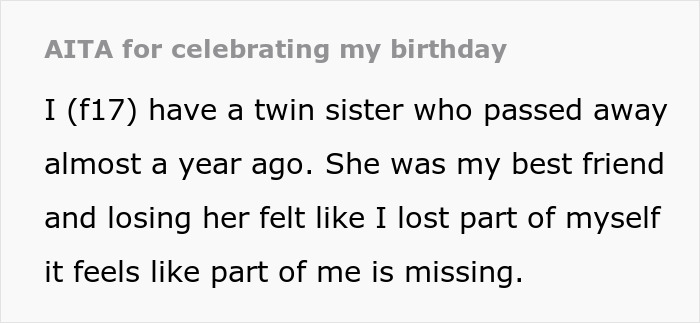

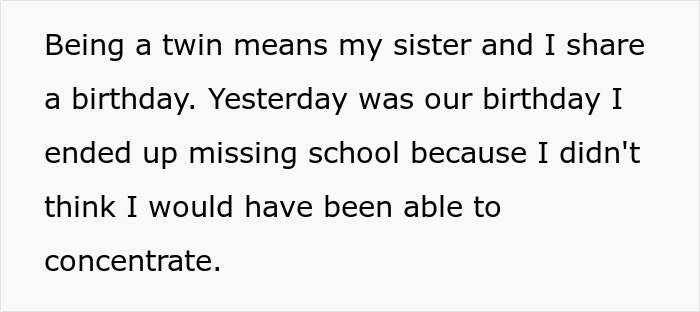

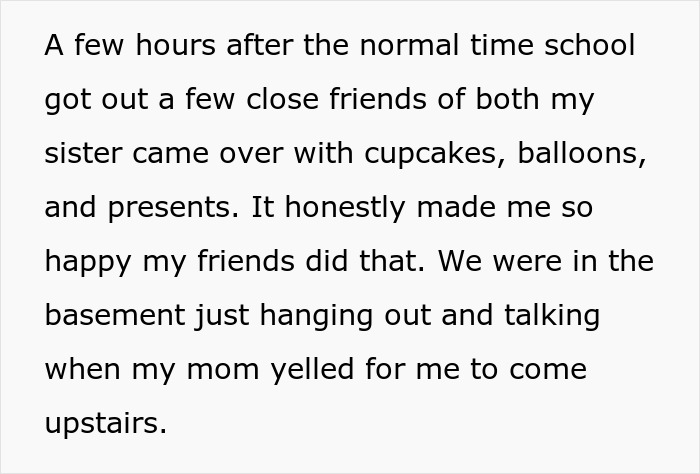


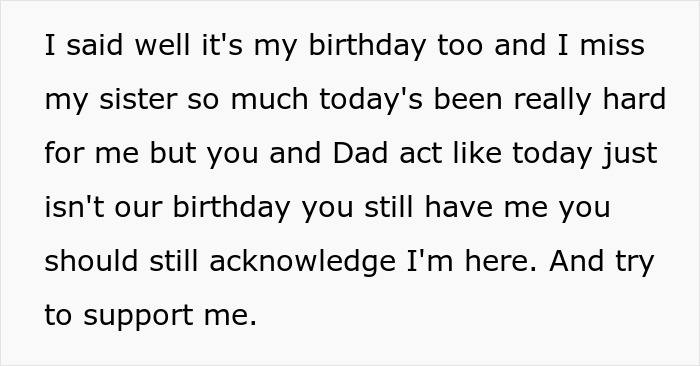

Image credits: Polina Zimmerman (not the actual photo)
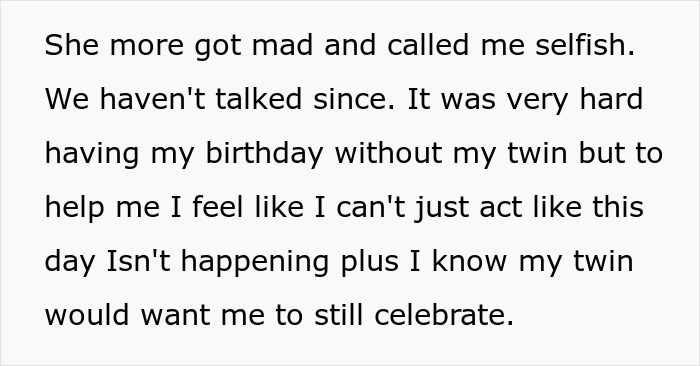
Image source: pineapplesmoothie17
Grief is a bumpy road that sometimes can cause slowdowns and the next moment feel smooth
Licensed professional counselor Melissa Porrey at Very Well Health encourages people to think of grief as a bumpy road that sometimes can cause slowdowns and the next moment feel smooth. This means that it’s not something parents will ever get over, but some days can feel better than others.
Rather than distinguishing the five typical stages of loss (denial, anger, bargaining, depression, and acceptance), she halves it into two and refers to its first part as acute grief. This is an immediate person’s reaction following a loss. During it, it’s common to feel shock and disbelief and find it hard to process the death. Memories of the late person may replay in their minds and can feel all-consuming.
It’s also common to keep such experiences inside and avoid other people and normal activities for a while. Although grief makes people go through overwhelming and painful feelings, it eventually becomes less intense. Over time, it becomes integrated and muted into the background of individuals’ lives.
For some people, it doesn’t end with this and continues for a long time without becoming a normal part of their routine. This is called complicated grief and causes a person to get stuck worrying about death. They also typically avoid talking about their grief after several months have passed. Complicated bereavement is the most common in parents who lost a child, making it hard for them to move on in a healthy way.
In any stage of grief, it’s important to find support

Image credits: Liza Summer (not the actual photo)
In any stage of grief, it’s important to find support, even though the person would gladly choose isolation instead. Reaching out to mental health specialists can help with processing the loss and finding a way to heal from the pain.
If parents have other kids, they need to remember that their child also requires more time and attention than ever before. In the case of losing a twin, it can be even more devastating to them. “Twin loss is unique because, for many twins, there can be a sense of “missing another half” or not being complete or whole as they are,” says Shelby Forsythia, grief coach and author of Your Grief, Your Way.
“Activities that used to be for two feel surreal or out of sorts when done solo. Surviving twins can often carry a sort of invisible timeline ticking by; each new milestone marks another one that their twin did not live to see, and that ticking timeline never fully goes away. And the people around them may put pressure on them to “live for two”—to live and experience the fullness of their own unique life, but to also live on behalf of the twin that they lost,” she explains.
Nathalie Himmelrich, a holistic counselor, coach, grief recovery, and trauma expert who herself experienced the loss of a twin as a parent, says that people around the sibling must understand that they’ll always feel like they have their twin with them.
“As a mother, I had to educate some of those around my daughter that it is in fact normal and expected, that she will talk about her sister and that for other children it might be confusing at first that she had a ‘dead’ sister. Her non-physical twin sister is and always will be part of her (and our) story and family,” she shares.

Image credits: cottonbro studio (not the actual photo)
Holidays and special occasions can be extremely difficult, as it can be strange not having the person around to celebrate with
Holidays and special occasions can be extremely difficult, as it can be strange not having the person around to celebrate with. “Birthdays are hard because they represent the passage of time, and this is especially heartbreaking for parents grieving a child. They might look around and notice children their age and recognize everything they’re missing out on,” says Forsythia.
“They might ache for the opportunity to celebrate their child’s life and accomplishments. They might also feel less and less in touch with what their child might look like, sound like, act like, and what their mannerisms and dreams might be. Their memories of their child are forever frozen in time. On top of all of that, they might feel pressure to put on a happy face, because birthdays are societally deemed “happy” occasions. But it can be difficult to feel like singing and eating cake when all you notice is your beloved child missing,” she adds.
The experts both say that even though it might be hard to show up and celebrate on an occasion like a birthday, parents have to do it for the surviving twin. “My child took my full attention and she was and is not one to overlook. She receives the full attention on her birthday AND we, as a family, always make time to remember that it is also her sister’s birthday. Over the years, it has become more and more a personal ritual for me as the mother to make space for whatever might come up, not just on the birthday but on the days leading up to the day. Some years, I have been surprised at the effect the remembering had on me and my body—something that is not easy to rationally explain—the body, the soul remembers,” shares Himmelrich.
Other healthy ways families can honor a late child on their birthday and celebrate the surviving twin is by blowing an extra candle on a cupcake for their twin or singing Happy Birthday twice, suggests Forsythia. “Older children might like to select a toy to donate to charity. Teens and adults might like to choose a cause to donate to in honor of their twin or go on a special day trip with their twin in mind. Expression of grief can change year to year, so parents should be open to and respectful of if and how their surviving child would like to incorporate their twin into their special day.”
There’s also a possibility that the surviving twin will want the day to themselves. “In that case, if parents feel like they need dedicated space or ritual to honor their deceased child on their birthday, they can take time alone or with each other to look at photos, tell stories, make phone calls to family and friends, or simply sit with their thoughts and cry. Everyone deserves to have their grief seen and honored on the day, but it shouldn’t be mandatory for everyone to participate in the same grief activities together.”
Himmelrich also agrees that the family should take into account their personal needs and really think about what they need at the moment. “This can and most likely will change over time, which is completely normal and to be expected. There are no rules or suggestions; all I can say is what I did: the first year we sat down as a family in a circle, lit a candle, and shared our memories of A’Mya and her impact on everybody’s life. We imagined what she would look like, what the two would be like together, and expressed our feelings as to her not being present. In the second year, I felt the urge to plant lavender in honor of my daughter and release some balloons,” she shares.
Lastly, she adds, “In essence, I feel that the ultimate aim of my journey with grief is to grieve with more love than pain. I can look back over the last 13 years and confidently say that on most days I am no longer painfully grieving her absence. Some days, when a specific situation triggers something in me, I see it as an invitation to meet something that has not previously been felt and see that moment of painful grieving as a gift of connection to her. I have however found and cultivated many more pain-free ways to connect to my daughter and remember her and her impact on my life.”
Readers wholeheartedly supported the author
